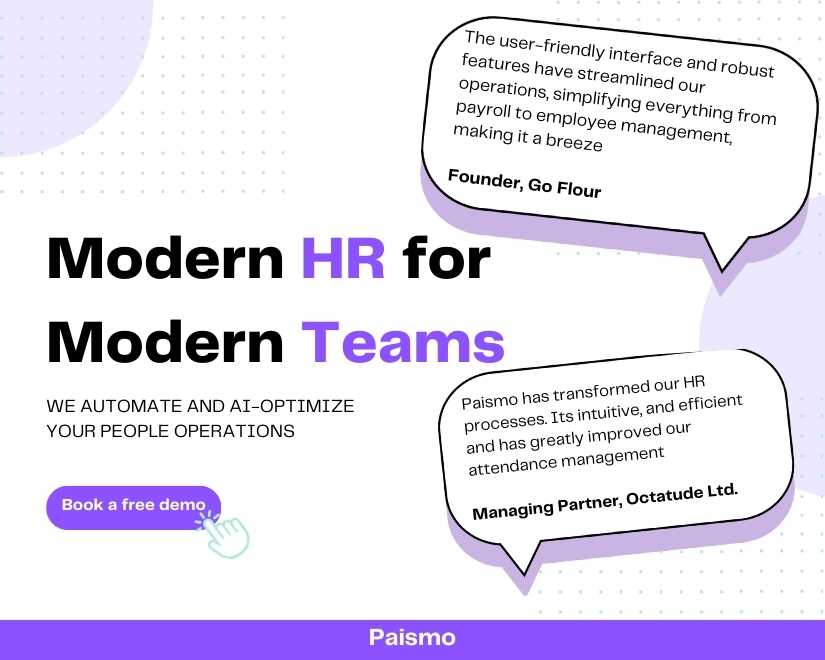Key Highlights
- Maternity leave in UAE law grants female employees 60 days of leave, 45 days fully paid and 15 days half-paid, with the option for an additional 45 days of unpaid leave for medical reasons.
- Maternity leave is a legal right that protects women’s employment status, promotes family-friendly workplaces, and supports work-life balance for working mothers.
- For enterprises, managing maternity leave effectively requires standardized policies, automated HR systems, advance workforce planning, and continuous compliance updates.
The journey of parenthood is both beautiful and challenging, especially for working mothers who balance career ambitions with family responsibilities. To support this balance, the United Arab Emirates (UAE) has established comprehensive maternity leave labor laws designed to protect the rights and well-being of mothers and their newborns.
In this article, we’ll explore everything you need to know about maternity leave in UAE, including eligibility, duration, and the key benefits it provides for working women and their families.
What is Maternity Leave?
Maternity leave is a legally mandated period during which female employees are granted time off from work to prepare for childbirth, recover afterward, and care for their newborn. During this time, mothers are protected by UAE labour law, ensuring that they continue to receive pay (as specified) and cannot be terminated due to pregnancy or childbirth.
Essentially, maternity leave in UAE is more than just time off, it’s a right that empowers women to focus on their families without compromising their professional standing. It also strengthens the social fabric by encouraging family-friendly workplace policies and promoting gender equality in the workforce.
How Long is Maternity Leave in UAE?
Under UAE labour law, female employees are entitled to 60 days of maternity leave. Of these 60 days:
- 45 days are fully paid, and
- 15 days are half-paid.
Maternity leave in the UAE can begin up to 30 days before the expected delivery date. Additionally, if a woman experiences any pregnancy or childbirth-related medical complications, she is entitled to an extra 45 days of unpaid leave upon providing medical documentation.
These provisions aim to create a healthier work-life balance for mothers while ensuring their physical and emotional recovery after childbirth.
How Enterprise Teams Should Manage Maternity Leave at Scale
Managing maternity leave in UAE at an enterprise level requires more than just compliance, it’s about ensuring consistency, empathy, and operational efficiency across a large, diverse workforce. As organizations grow, HR leaders must build systems that make maternity leave management smooth, transparent, and scalable.
Here’s how enterprise HR teams can effectively handle maternity leave at scale:
1. Standardize Maternity Leave Policies Across All Locations
For large organizations with offices across multiple emirates, or even different countries, maternity leave laws may vary slightly. To avoid inconsistencies and confusion, enterprises should standardize internal maternity leave policies.
Create a clear, centralized maternity leave handbook that outlines:
- Eligibility criteria and documentation requirements
- Pay structure (fully paid, half-paid, or unpaid leave periods)
- Rules for early or extended leave
Make this accessible through the company’s HR portal or employee self-service platform so every employee can easily find accurate information. Standardization ensures fairness, boosts employee confidence, and helps maintain compliance with UAE labour laws.

2. Automate Leave Requests and Approvals
Manual processing of maternity leave requests can be inefficient, especially for organizations managing hundreds or thousands of employees. Using an enterprise-grade HR and payroll system like Paismo helps automate:
- Leave applications and document submission
- Approval workflows
- Notifications and record-keeping for compliance audits
Automation ensures all requests are processed accurately, reduces the risk of human error, and keeps the entire process transparent and traceable.
3. Plan Workforce Coverage in Advance
Maternity leave can affect team structures, project timelines, and resource planning. To maintain continuity, HR teams should plan coverage well in advance.
Coordinate with department heads to:
- Redistribute key responsibilities
- Identify interim team leads
- Hire temporary or contract staff where necessary
Proactive planning ensures productivity remains steady and prevents burnout among existing team members during an employee’s maternity leave.
4. Monitor Legal Compliance and Update Regularly
Labour laws surrounding maternity leave in UAE continue to evolve, and enterprise HR teams must stay up to date. Assign a compliance officer or HR policy team to review UAE Labour Law changes at least twice a year.
Regularly update your maternity leave policies, payroll configurations, and employee handbooks to reflect the latest legal requirements around:
- Leave duration
- Payment entitlements
- Nursing breaks and additional benefits
Continuous monitoring ensures full legal compliance while demonstrating the organization’s commitment to supporting working mothers.
Frequently Asked Questions (FAQ's)
How long is maternity leave in UAE?
Female employees in the UAE are entitled to 60 days of maternity leave, the first 45 days with full pay and the remaining 15 days with half pay.
Is maternity leave paid in UAE?
Yes, maternity leave in UAE is partially paid. Employees receive full salary for the first 45 days and half salary for the next 15 days.
Are part-time or contract employees eligible for maternity leave in the UAE?
Yes. Under UAE Labour Law, part-time and contract employees are also eligible for maternity leave in UAE if they meet the required service and contractual conditions. Pay is typically calculated proportionate to their working hours or contract terms, but the leave duration remains the same.
Can maternity leave be extended beyond the standard duration in UAE?
Yes. Employees can extend maternity leave by up to 45 additional days of unpaid leave if they are unable to return to work for medical reasons supported by a doctor’s certificate. In cases of a newborn’s illness or disability, further paid or unpaid leave may also be granted.
What is the maternity leave entitlement under UAE Labour Law for private sector employees?
Female employees in the private sector are entitled to 60 calendar days of maternity leave in UAE, 45 fully paid and 15 half-paid. Additional leave may apply in cases of medical complications, premature birth, or a child’s illness, provided valid medical documentation is submitted.
Become a part of the Paismo community
Paismo is an HR software that can help simplify your HR operations. In today's dynamic economic environment, efficient HR and automated payroll management are no longer a luxury but a necessity. Paismo is a comprehensive solution that transforms traditional HR complexes into streamlined and automated workflows. Paismo and its paired biometric device integration can be used for your business to mark employee attendance and record their timesheets accurately.
Paismo simplifies your tasks with its core HRMS, timesheets, and attendance management, as well as biometric attendance, payroll automation, and leave management system.

Take the first step toward modernizing your HR and payroll processes and explore what Paismo can do for you. Book a demo with our sales team.








